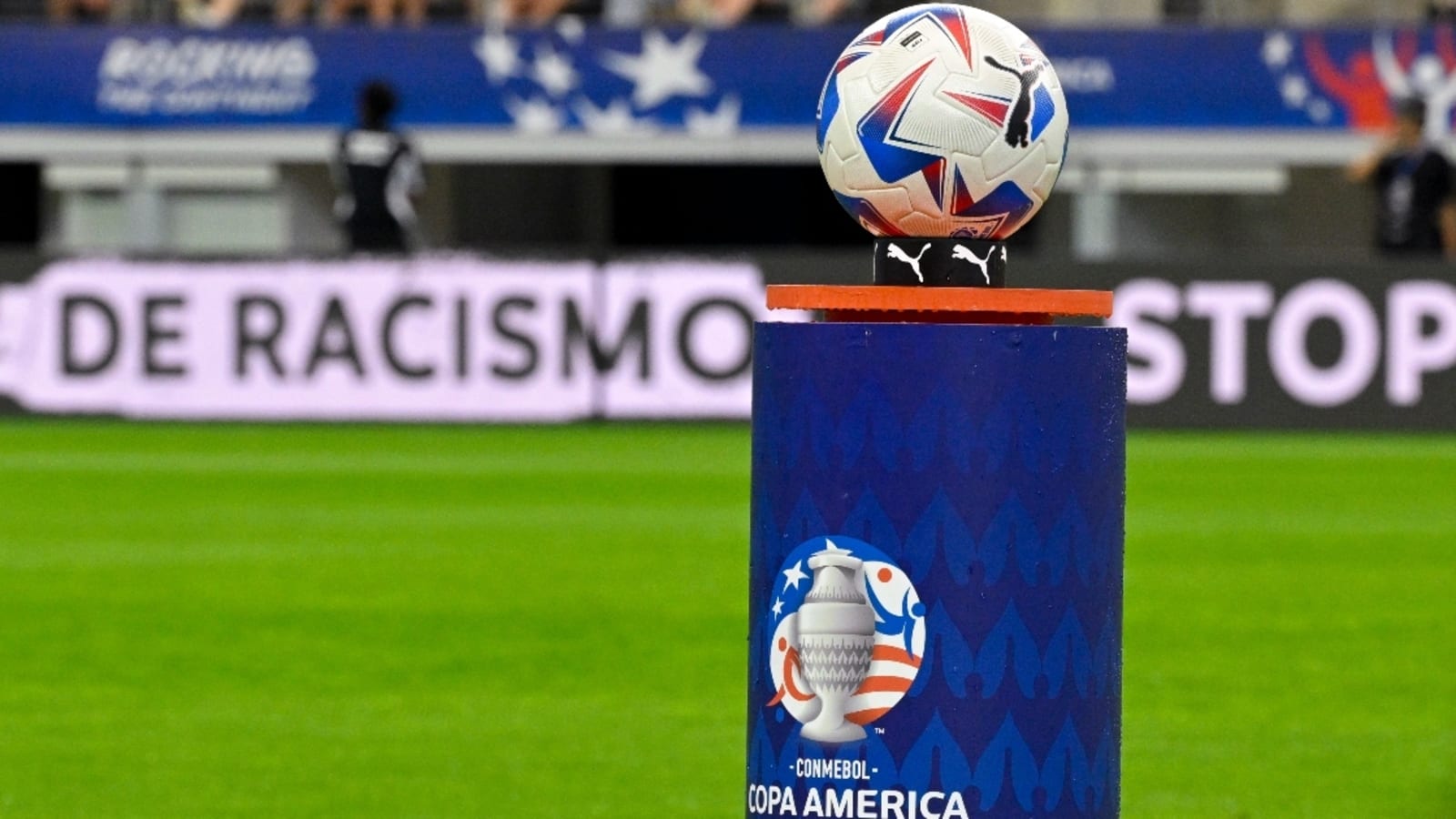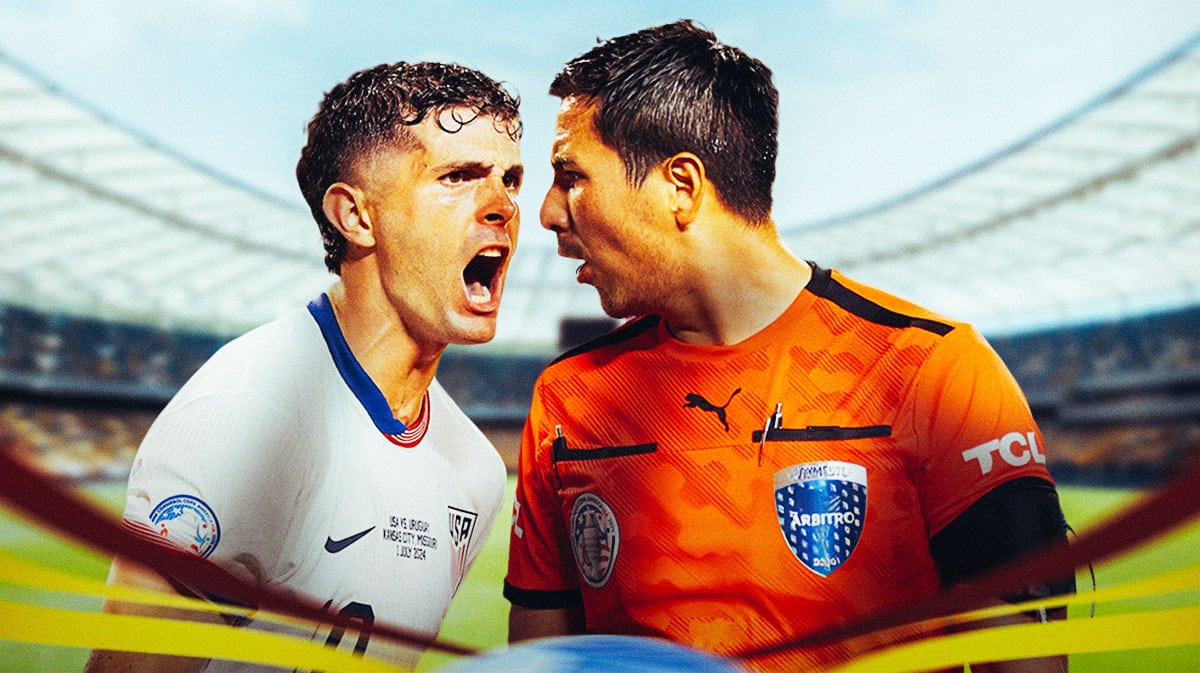Match Controversies: Usa Uruguay Referee

Usa uruguay referee – Throughout the history of USA vs. Uruguay soccer matches, there have been several notable controversies involving referees. These incidents have ranged from questionable decisions to alleged bias, and have had a significant impact on the outcome or perception of the matches.
One of the most famous controversies occurred during the 2010 FIFA World Cup semi-final match between the two teams. In the 81st minute, Uruguay’s Luis Suarez was sent off for a handball on the goal line, which prevented a certain goal for the United States. The decision was highly controversial, as many felt that Suarez should have only been given a yellow card. The United States went on to lose the match on penalties, and many believe that the referee’s decision played a major role in the outcome.
Di USA vs Uruguay match, di referee really try e best to control di game. E no dey give any team advantage. E dey fair to both teams. But, I wonder if e go dey fair like dat if di match na between USA and Jamaica.
Anyway, I no fit talk about dis match again. I wan go check if Beryl go hit Florida. I hear say e dey come. I hope e no go cause too much damage.
Another controversial incident occurred during the 2014 FIFA World Cup group stage match between the two teams. In the 70th minute, Uruguay’s Edinson Cavani was awarded a penalty after being fouled by USA goalkeeper Tim Howard. However, replays showed that Cavani had actually dived, and the penalty was widely criticized as being unfair. Uruguay went on to win the match 2-1, and again, many felt that the referee’s decision had a major impact on the outcome.
These are just two examples of the many controversies that have occurred during USA vs. Uruguay soccer matches. While some of these decisions may have been justified, others have been widely criticized as being unfair or biased. These controversies have led to a great deal of debate and discussion about the role of referees in soccer, and have also raised questions about the integrity of the game.
Patterns and Trends
There are a few patterns and trends that can be identified in the controversies that have occurred during USA vs. Uruguay soccer matches. First, many of the controversies have involved decisions that have gone against the United States. This has led to accusations of bias against the United States, although there is no evidence to support these claims.
Second, many of the controversies have involved decisions that have been made in the latter stages of matches. This suggests that the pressure of the moment may be playing a role in the referees’ decision-making. Finally, many of the controversies have involved decisions that have been made by referees from outside of the United States. This suggests that the referees may be more likely to make decisions that favor their own country.
Di ref wan blow wistle for USA and Uruguay match. Di match na important one. E fit decide who go win di World Cup. But for now, make we no tink about dat. Make we tink about Hurricane Beryl.
Di hurricane dey come, and e dey come fast. We need to be ready for am. Click here to see di prediction for Hurricane Beryl. After we don see di prediction, we go fit come back to di match and see who go win.
It is important to note that these are just trends, and there is no guarantee that they will continue in the future. However, they are worth noting, and they should be taken into consideration when discussing the role of referees in soccer.
Refereeing Standards

The refereeing in the USA vs. Uruguay matches has been a subject of much debate, with some arguing that the standards have been poor and others defending the referees. In this section, we will analyze the performance of the referees in these matches, considering factors such as accuracy, consistency, and fairness. We will also discuss any notable strengths or weaknesses in the refereeing and suggest areas for improvement.
Accuracy
One of the most important factors in refereeing is accuracy. Referees must be able to make correct decisions quickly and consistently, even under pressure. In the USA vs. Uruguay matches, there were several instances where the referees made incorrect decisions. For example, in the first match, the referee failed to award a penalty to Uruguay after a clear handball by a USA player. In the second match, the referee incorrectly ruled out a goal by Uruguay for offside.
Consistency
Consistency is another important factor in refereeing. Referees must apply the laws of the game in the same way to both teams. In the USA vs. Uruguay matches, there were several instances where the referee applied the laws differently to the two teams. For example, in the first match, the referee gave a yellow card to a Uruguay player for a foul that was no worse than a foul committed by a USA player earlier in the match. In the second match, the referee allowed a USA player to continue playing after he had committed a clear foul.
Fairness
Fairness is the most important factor in refereeing. Referees must be impartial and must not favor one team over the other. In the USA vs. Uruguay matches, there were several instances where the referee appeared to be biased towards one team or the other. For example, in the first match, the referee gave several questionable decisions in favor of the USA. In the second match, the referee gave several questionable decisions in favor of Uruguay.
Comparison to Other International Matches, Usa uruguay referee
The refereeing standards in the USA vs. Uruguay matches were not as high as the standards in other international matches. In the World Cup, for example, the referees are typically more accurate, consistent, and fair. This is because the referees in the World Cup are more experienced and have been trained to a higher standard.
Areas for Improvement
There are several areas where the refereeing in the USA vs. Uruguay matches could be improved. First, the referees need to be more accurate in their decision-making. Second, the referees need to be more consistent in their application of the laws of the game. Third, the referees need to be more fair and impartial. Finally, the referees need to be more experienced and better trained.
Cultural Differences

The cultural differences between the United States and Uruguay can influence the refereeing of matches between the two countries. These differences can affect the way referees perceive and interpret situations, which can lead to different outcomes.
For example, in the United States, there is a strong emphasis on individualism and personal responsibility. This can lead referees to be more focused on individual players and their actions, rather than on the overall flow of the game. In Uruguay, on the other hand, there is a stronger emphasis on collectivism and teamwork. This can lead referees to be more focused on the team as a whole, rather than on individual players.
Impact on Refereeing Decisions
- In a match between the United States and Uruguay, the referee may be more likely to call a foul on an individual player from the United States for a minor infraction, such as a push or a shove. This is because the referee may be more focused on individual players and their actions.
- In the same match, the referee may be more likely to allow a foul by a player from Uruguay to go uncalled, if the foul is part of a larger team effort to win the ball. This is because the referee may be more focused on the team as a whole, rather than on individual players.